
2019 Earth Day Festival Highlights


By Robert Bernstein
Earth Day drew a crowd of many thousands over three days at Alameda Park.
Here are my photos, videos and more.
A highlight of the event was the Environmental Hero Awards ceremony, hosted by Senator Hannah-Beth Jackson. Filmmaker James Cameron was on hand to deliver an Environmental Hero Award to his wife. Suzy Amis Cameron had written and published a book called OMD: Change the World by Changing One Meal a Day.
She advocated eliminating meat from one meal each day. She claimed that this has the same greenhouse gas effect over the course of a year as eliminating a round trip drive from coast to coast.
She said that James Cameron’s films were more about a future of gloom and doom than of a better, hopeful future. She said his world view has become more positive since adopting this OMD plan.
Here is my video of the complete presentation and her explanation of this idea
After the presentation they kindly posed with World Dance for Humanity dancer Caroline Follosco Barnett
Student Rose Strauss also received an Environmental Hero award. She had been doing climate change activism before heading to college. In college she felt she was betraying her commitment to the urgency of climate change. She wore a shirt proclaiming “12 years” which is how much time we have to avert the tipping point for climate change. She has continued her activism while continuing her college studies now. Here is her complete presentation
Hundreds of booths offered information about climate change and many other vital environmental issues. Here was our own Sierra Club booth which was very popular. People were invited to spin the wheel to answer an environmental question. Correct answers won a small treat: Organic fig, chocolate peanut butter cup, carrot or orange.
We also handed out a Sierra Club fact sheet based on the site “America’s Autos on Welfare”. It documents over $500 billion/year in subsidies for private motor vehicle use in the US.
Here is a PDF of that fact sheet.
There was a “Green Car Show” offering electric, hybrid and hydrogen fuel cell cars
But these all have the same environmental land use and environmental justice problems of fossil fuel cars. It was good to see an exhibit of electric assisted bicycles which greatly reduce those impacts
And Traffic Solutions was promoting CycleMAYnia: A whole month of fun activities to promote bicycling
And SBBIKE offered a free bike repair clinic
Paul Cronshaw drew a crowd to learn about the wonders and challenges of beekeeping at a time that bees are threatened with die-offs
The UCSB Cheadle Center for Biodiversity and Ecological Restoration (CCBER) talked about their ambitious plans at the North Campus Open Space to plant over a million native plants. One plant at a time to restore a native ecosystem where a golf course once stood.
Citizens Climate Lobby works at a big scale to change policies to head off climate change. Individual action can only go so far. Big scale policy changes are essential
Long time environmental activist Marc McGinnes is well known in the Solstice Parade as a colorful stilt walker. He even wrote a book called Rise Up that combined his activism and stilt walking. His latest book is “In Love With Earth: Testimonies and heartsongs from an environmental elder”. McGinnes was a lawyer sent to Santa Barbara by former Senator Pete McCloskey to use his legal skills on behalf of the environment.
It was 1969 and the oil spill had just happened. It was a whole new world of law to battle these massive oil companies. Up until then they had gotten away with environmental damage with little or no public review or penalties.
McGinnes went on to be a founding president of the Community Environmental Council which was part of the very first Earth Day. He was a founding attorney at the Environmental Defense Center. And he was a former environmental lecturer at UCSB. He has much to share with us!
“Get Hooked” is a program with the local fishing people to get local seafood on a regular basis
Junior Crew was the second of six Santa Barbara Dance Arts performance groups at Earth Day
Please click here to see all six performances of these skilled and talented young dancers
There were also plenty of other fun activities at Earth Day provided by UCSB Adventure Programs and others
Comments
0 Comments deleted by Administrator
Leave a Review or Comment
You must be logged in to post a comment.



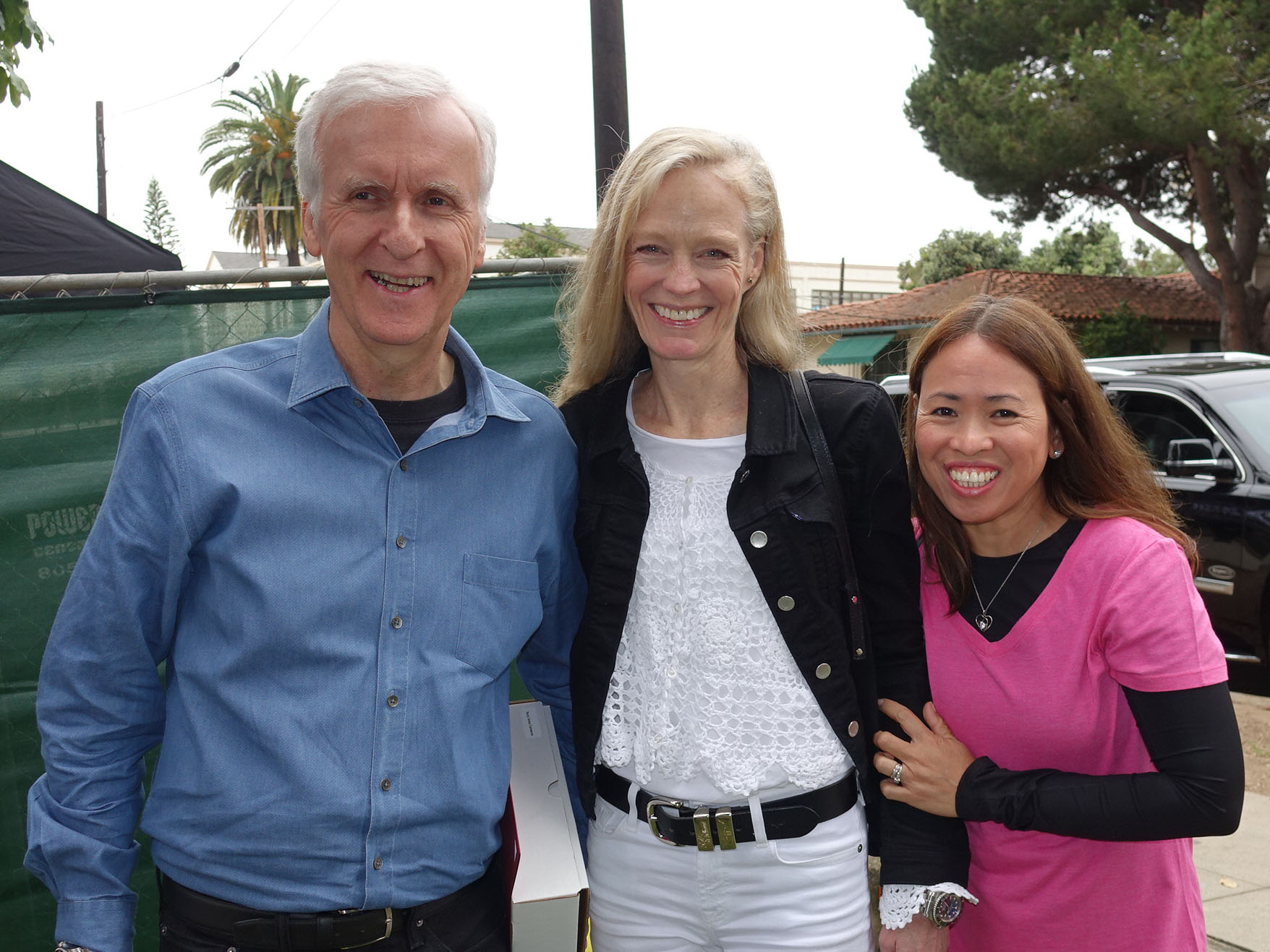
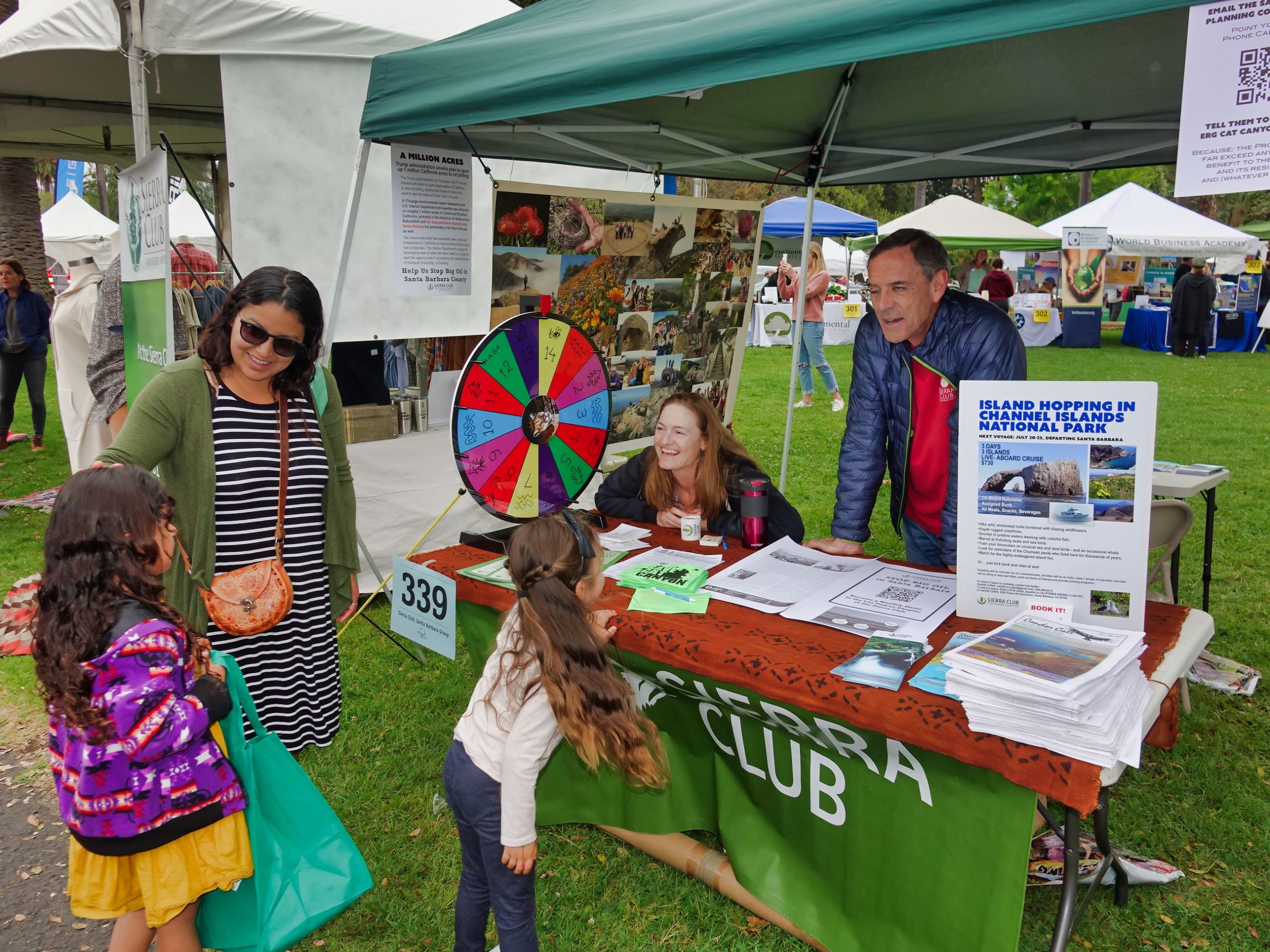
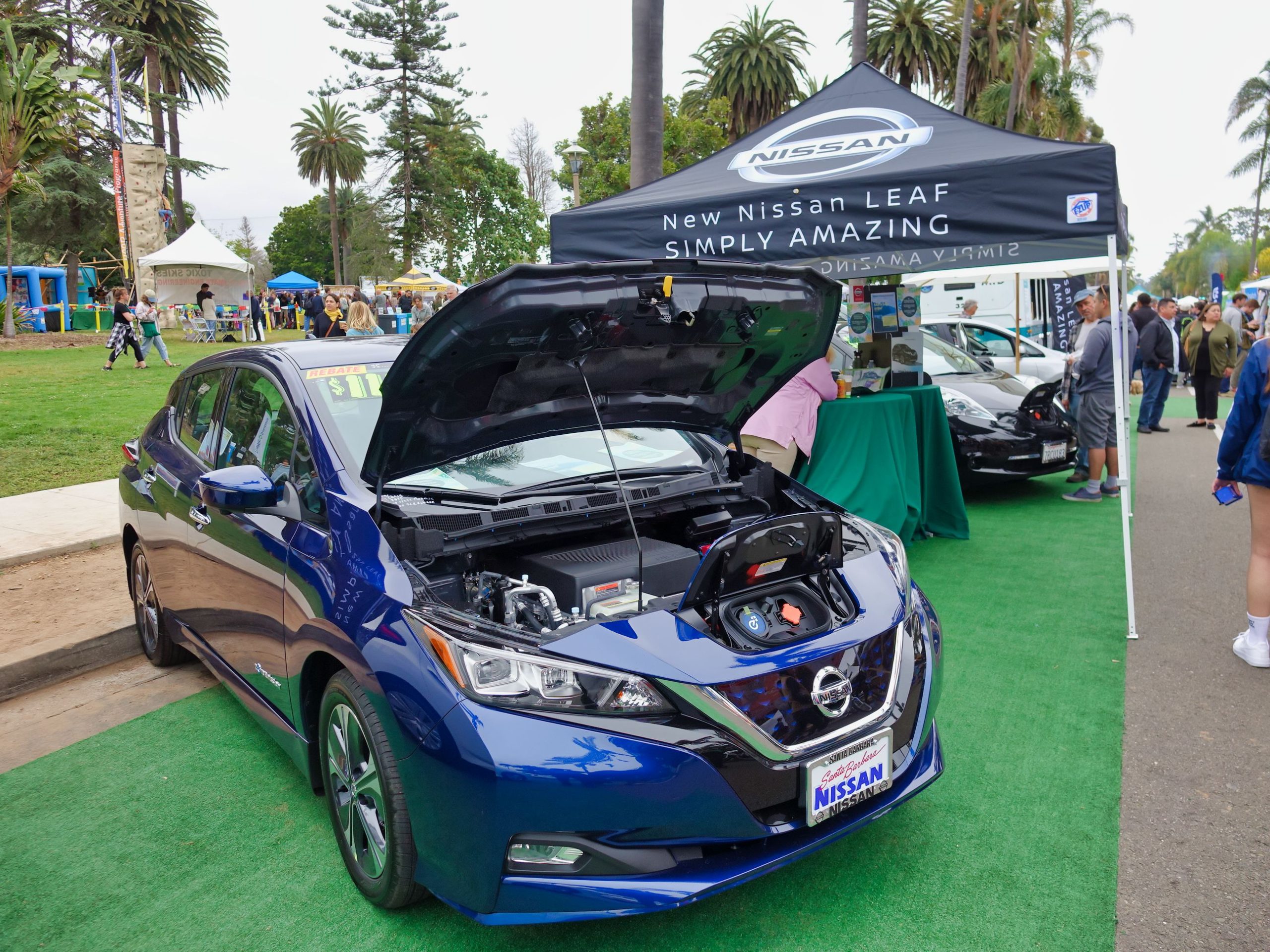
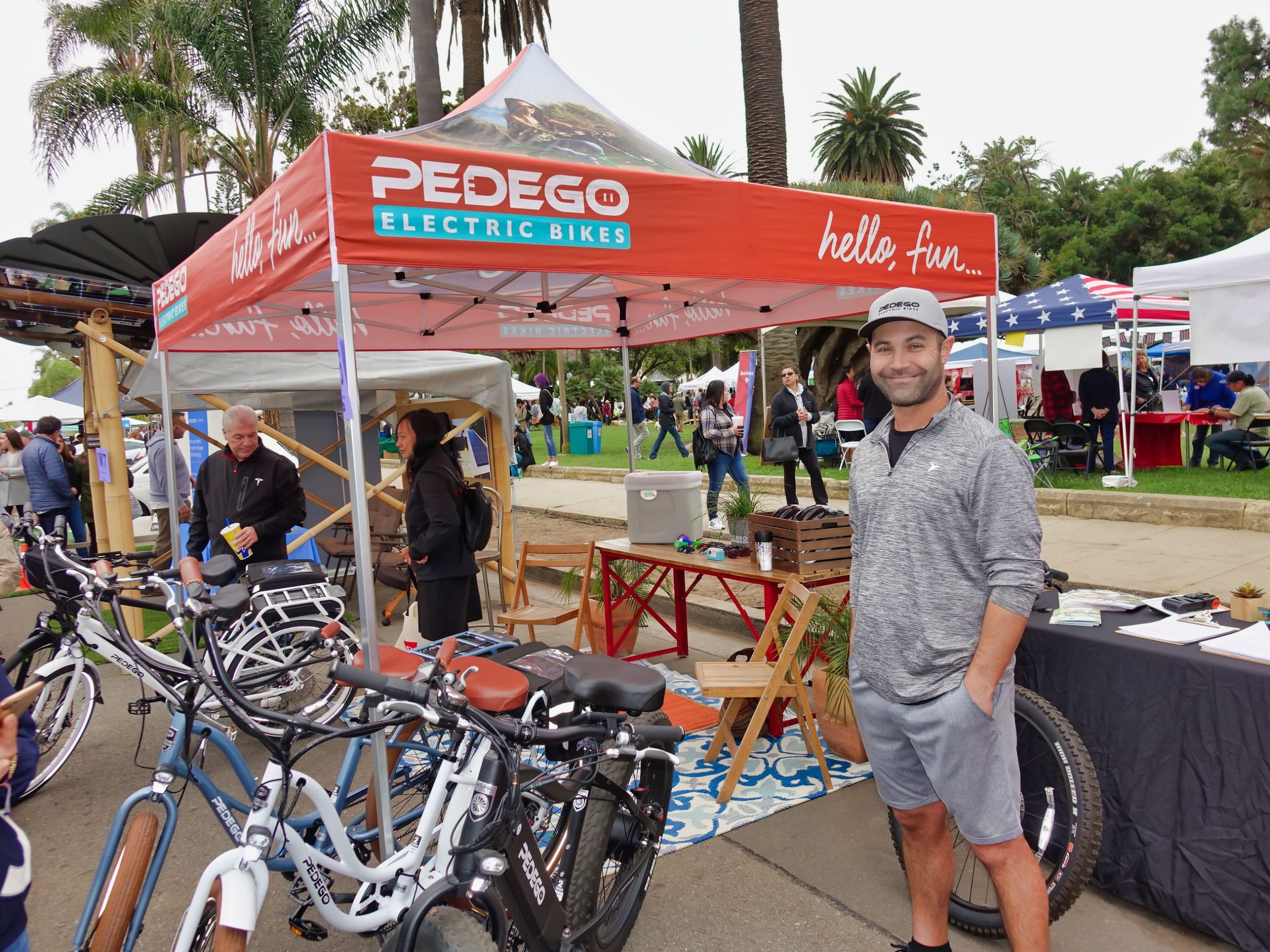
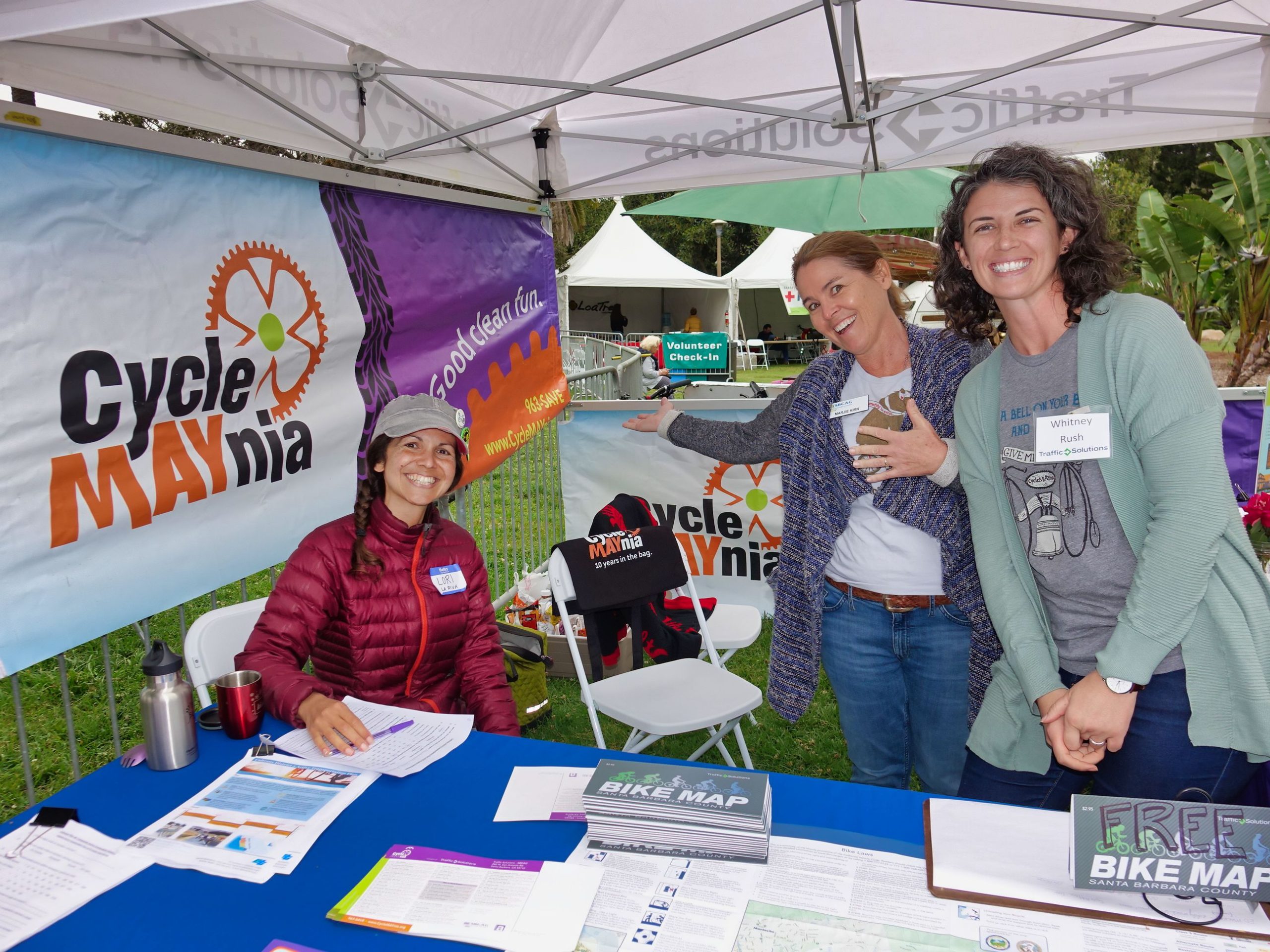
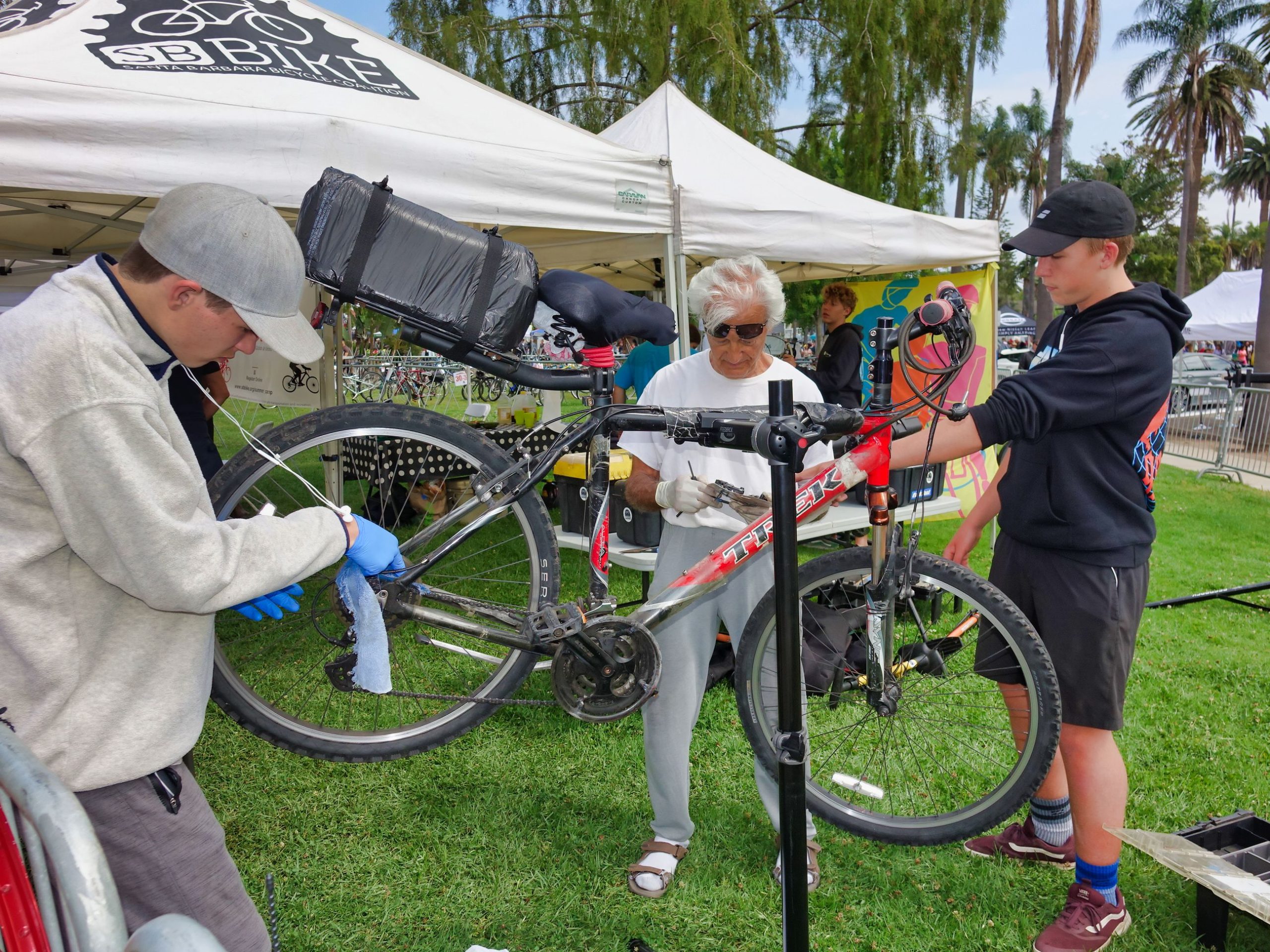
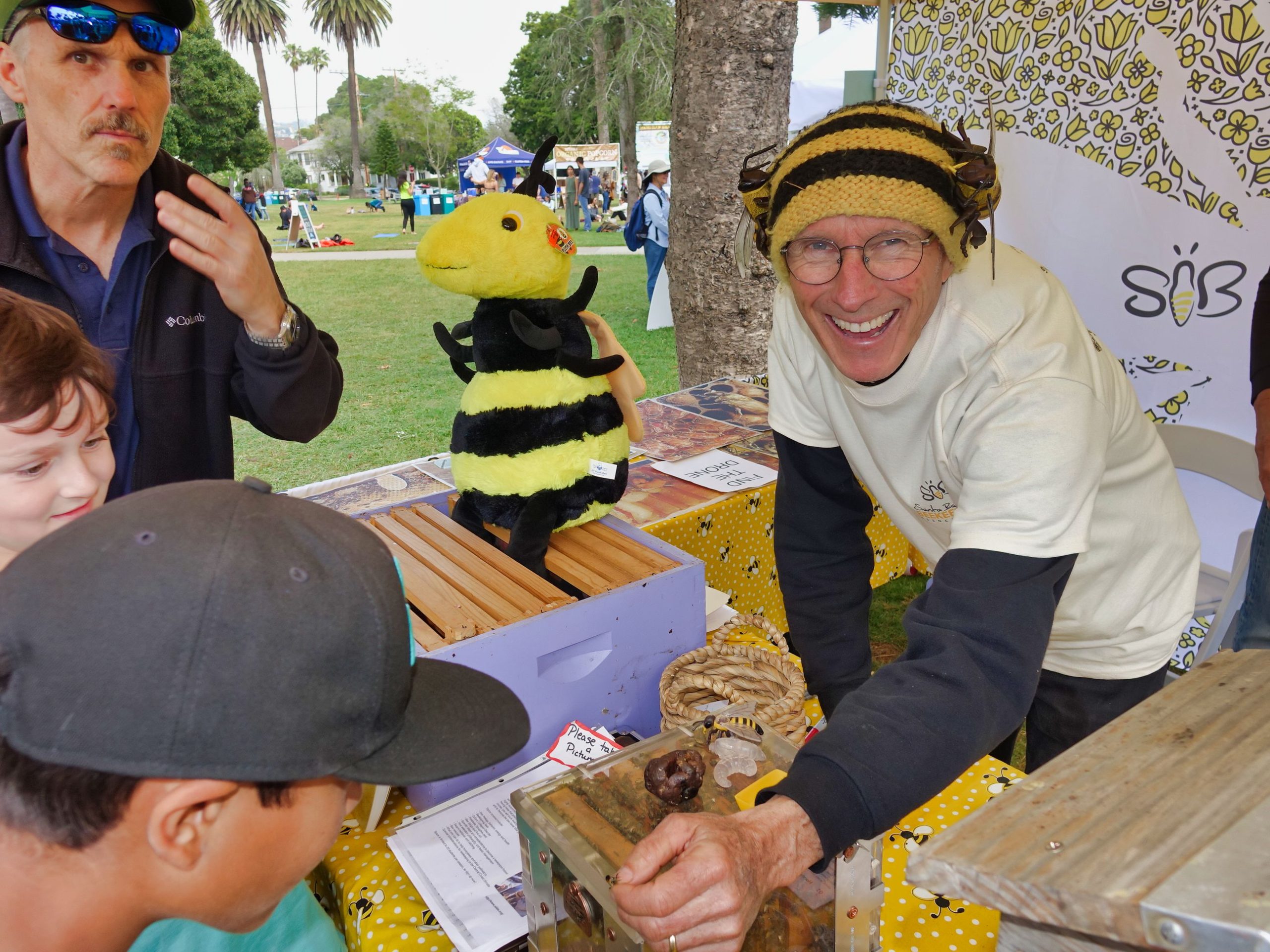
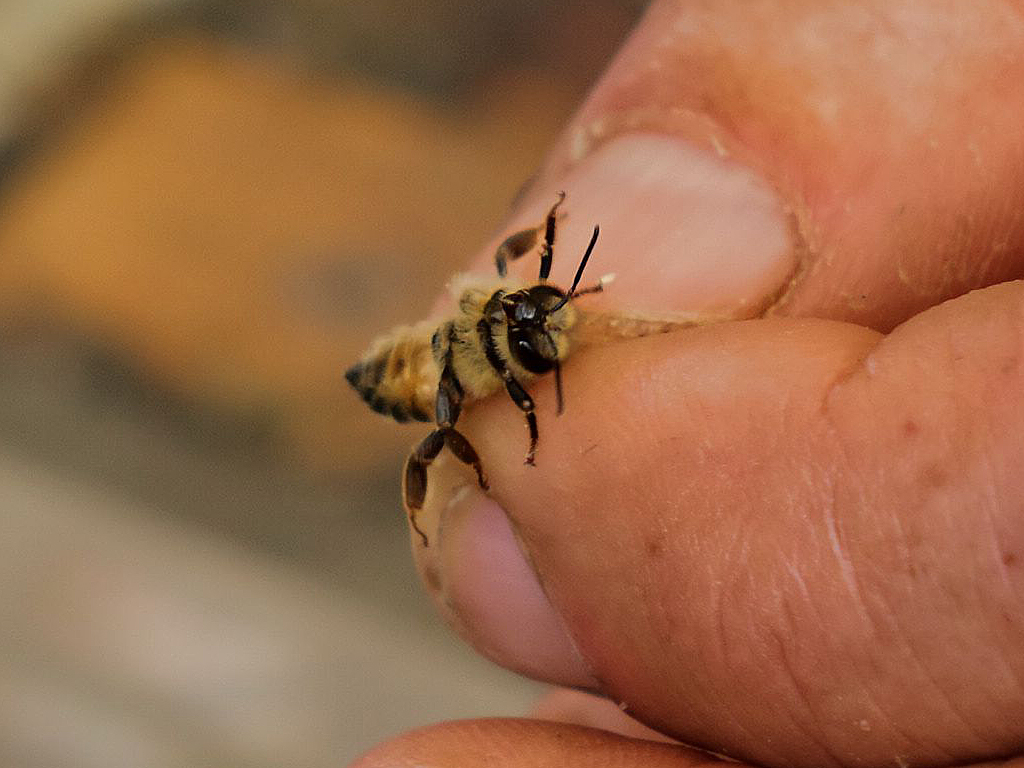
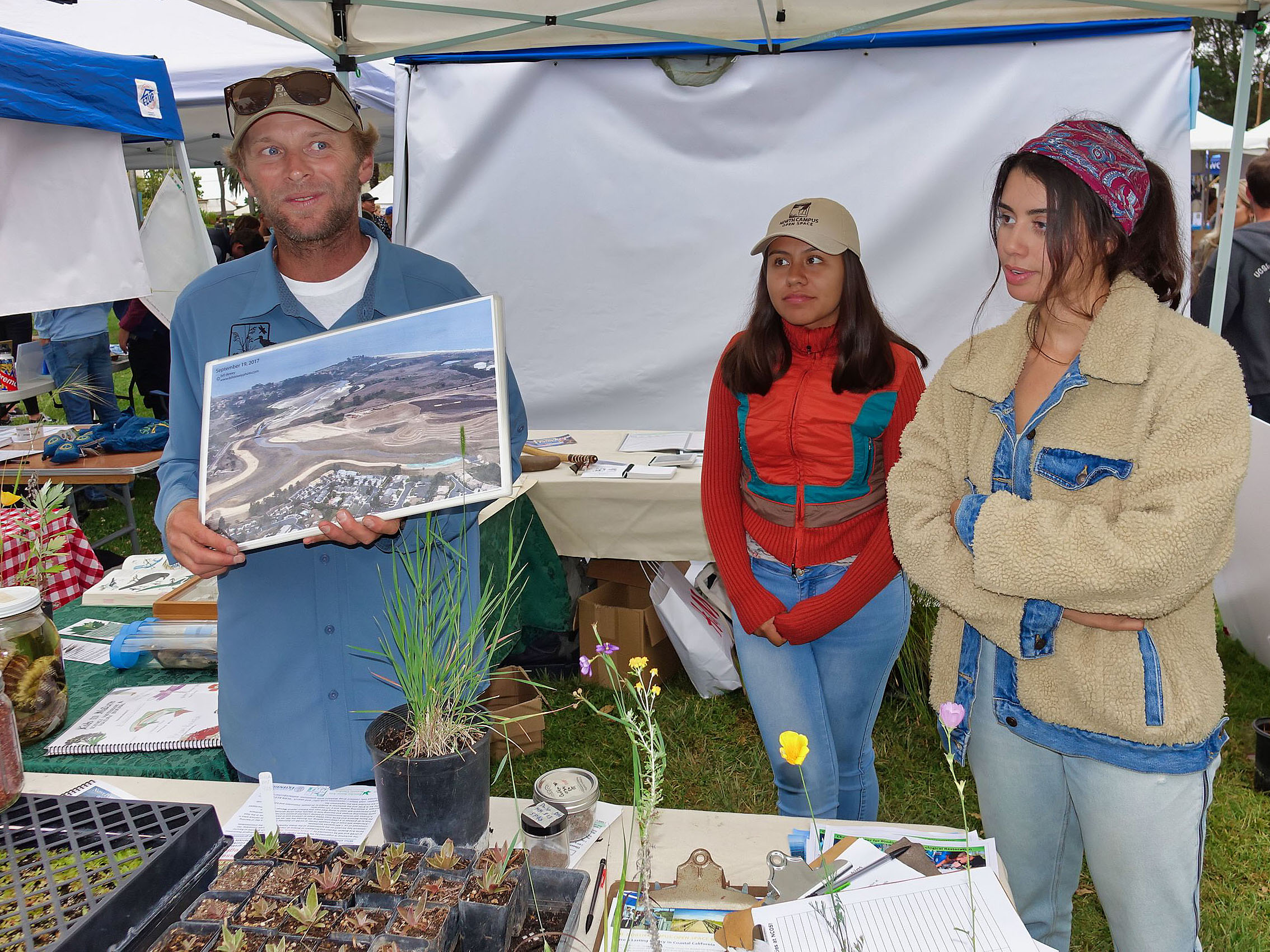
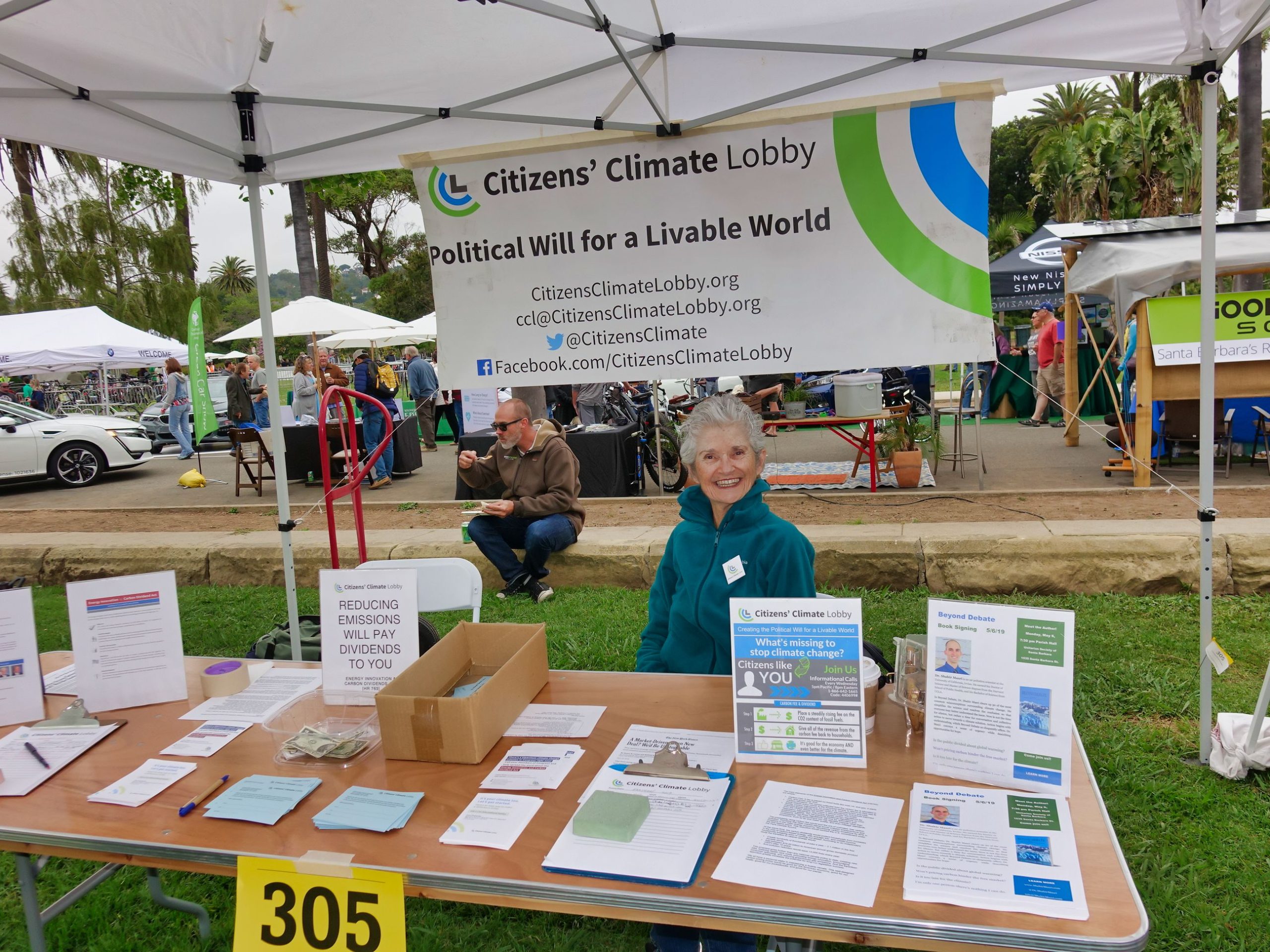






Thank you for asking, BIRD. Please read the America’s Autos on Welfare link in the article for part of the answer. Here is a letter I published in Scientific American back in 2003 on the subject http://swt.org/robert/writ/sciam0203.htm and below is the text of that letter:
==========================================================================
“You would still have to cut down the trees and pave everything over for roads.” This was an answer given by a fourth-grade student when I asked what environmental effects cars would have if they were powered by a nonpolluting source of energy, such as hydrogen fuel cells.
==========================================================================
The biggest impact of private motor vehicles is the creation of sprawling land use, which in turn causes forced dependency on cars. Fuel-cell cars would also still injure millions of Americans in collisions, another problem with personal transportation, and would still leave stranded the one third of the U.S. population that doesn’t drive. Cars would still sit in traffic jams and average a lower effective speed than bicycles. We can do much better with transportation and land use.
You may have “read” it, but you obviously made no effort to understand. Each day our society has a chance to encourage sustainable transportation or forced automobile dependency. Hundreds of billions of dollars are spent each year on the latter. Those are the facts. Even if you use the Trumpian “logic” of saying they are “made up” with zero evidence.
Thanks to other commentators for noting that the statement “these [electric autos] all have the same environmental land use and environmental justice problems of fossil fuel cars.” This is a dogmatic and polemic assertion that is based on a narrow view of the future. Not every person is suited for bicycle use. Not many want a world in which we all live in beehive communities. Robert’s a great chronicler of a certain view but in this sort of article his enthusiasm is sort of akin to religious zeal. For example wouldn’t a discussion of the benefits of a declining world population be valuable? I can imagine a world in which human footprint is reduced both by smaller populations and by better environmental actions. Unfortunately that is contrary to the corporate profit model which demands more workers and more consumers.
RHS you totally missed Robert’s point. He is not telling people what they should do. He is telling the facts as they are: We subsidize people to drive with hundreds of billions each year. And it is a fact that automobiles create sprawl. If you don’t like the facts, don’t blame the messenger.
I agree re a “narrow view of the future.” I read the Sierra Club pdf but did not find it convincing. Perhaps it makes sense, these claimed “subsidies”, if a country was starting from scratch to build a highway/road system, but for most, they are built, although needing repairs. Most of the others seem to be made up “facts”. But what is lacking is any balancing: there is a strong plus side to private motor vehicle travel. In the beehive world promoted, there is no place for privacy. As it is now, many choose to commute in their own vehicles, alone, because in a too-crowded world, even here, there is little opportunity to be alone, to listen to one’s own music at whatever volume one wants or have none at all. For some, that’s close to priceless. There’s also the choice of getting more for one’s housing money than one can in SB. It was very obvious in the afternoons of Saturday and Sunday that the vast majority of visitors to Earth Day came by car; it would be nice if the city would make all public transit free for that weekend: that would be a meaningful and welcome contribution.
Arguing these things with closed minds is like arguing with a door to door religious salesman. The “facts” you cite are what society’s do. We prioritize some things and discourage others. Often we find that what we encouraged and selected has problems. Then we alter the priorities but we need not demonize others when this happens. It is hyperbole to put electric cars (especially in their early iterations) into the same category as petrochemical powered vehicles. Or maybe solar powered homes are just as bad a coal powered furnaces that were common not long ago?
Not much more than a tie-dye, CBD oil, expensive water emporium and heavily subsidized electric muscle car show. Not much new under the sun to learn, except novel ways to get people to part with their money for dubious fear-mongering products – your water is not safe, your food is not safe, your air is not safe, but ersatz CBD oil is the magic elixir of life and happiness. Uhhh, does this sound like the same old snake oil hustles of times gone by? You betcha.